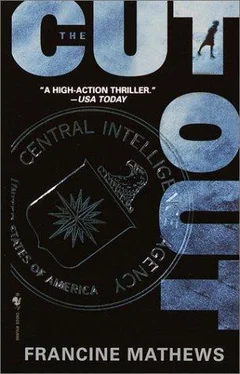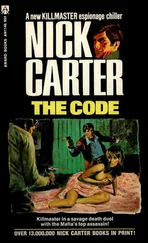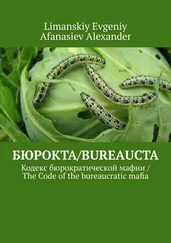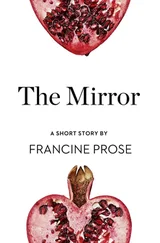Krucevic may secure considerable income from a series of legitimate front companies to which he has been tied, but the chief source of 30 April's funding remains unknown. As an avowed enemy of Islam, Krucevic has spurned the usual Middle Eastern patrons of terrorism. The bunk of his funding probably comes from private sources within Europe who support his ideological goals. (S NF NC OC)
We believe that Krucevic is highly intelligent, disciplined, and dedicated.
Although an extremist in his political views and the methods he employs to further them, he is not, in our view, mentally ill. When he kills, it is for strategic or philosophic reasons, rather than as arbitrary acts of sadism. (S NP NC OC) Krucevic demands unquestioned loyalty from others, but is incapable of trust. He does not tolerate dissent within the 30 April Organization; according to an untested source with good access, Krucevic personally shot two of his senior deputies last year in an internal purge. (SNF NCOC) Krucevic, fifty-eight, is the son of a Croat who committed suicide after World War II. He is estranged from his wife of thirteen years, Mirjana Tarcic, but is believed to have custody of their twelve-year-old son, Jozsef. He reportedly speaks Croatian, Serbian, German, and some English. (C)
What the bio did not mention, Caroline thought, was that Krucevic's father was rumored to have been an Ustashe concentration camp commander. The place he might have governed from 1942 to 1945 bore one of the ugliest names in Yugoslav history: Ziv Zakopan, “Living Grave.” But no one had ever found the camp after the war; no witnesses survived to describe its horrors. Only whispers and imprecations remained, the furtive sign against the evil eye, among the children and grandchildren of those who had died.
The CIA was not in the practice of printing rumors.
Four grainy black-and-white photographs were tucked into Krucevic's file.
Caroline studied the first, dated seven years before: a shot of a tenement house in flames, a Turkish woman raising her hands in anguish, keening. At her feet was the blanketed corpse of her small son. The next photo was now famous the world over: a Mercedes limousine creased in its midsection like a metallic boomerang. Gerhard Schroeder's body lay at a bizarre angle across the backseat, his right hand dangling from the open passenger door. The chancellor had been an attractive man before Krucevic crushed his armored car like a soda can.
Caroline's fingers hesitated over the final two pictures. She hated seeing them.
They had been taken in a police morgue, as exhibits in a trial that would never be held. Krucevic's trial for inhuman cruelty, for utter lack of heart. Dagmar Hammecher was three and a half when she was snatched from her nanny at gunpoint. She had bright gold hair that cascaded down her back, and she loved to pose in ballet shoes. Her mother taught in a Hamburg medical school, her father was a banker. But it was Dagmar's grandpa whom Krucevic intended to destroy. Ernst Hammecher was a federal court judge charged with considering the constitutionality of Germany's new alien-repatriation laws.
He had survived the Nazi era, and was no friend to bigots. He was expected to reverse the legislation. Ernst Hammecher received his granddaughter's hand in the mail two days after she had been kidnapped.
Caroline forced herself to look at the police photograph. The childish fingers still curled upward, as they must have done a thousand times in Dagmar's short life — reaching for her mother, her favorite stuffed toy, the curved handle of a juice cup. But the edge of the severed wrist was ragged and black with blood.
They had not attempted to spare her pain.
“Otto,” Caroline whispered. The 30 April member who enjoyed killing.
The final shot was of Dagmar's corpse, dropped on her grandfather's doorstep six days after the child's abduction. The small features were gaunt and pale, too drawn with suffering to be those of the little girl who loved ballet tutus and chocolate ice cream. Krucevic had shaved her head. The wounds of electrodes placed in the child's skull were obvious even in reproduction.
Her throat tightening, Caroline thrust the vicious image face-down against the file folder and read through Krucevic's bio again.
One of the sources she had used in the report — a DO source — had been characterized as untested, with good access. She flipped quickly through the documents attached to the left-hand flap of Krucevic's file. A translated piece from the German newsmagazine Das Bild; another from a Sarajevo newspaper; five State Department cables out of Frankfurt, Bonn, and Belgrade; and three TD's — the classified and sifted reports disseminated by the Directorate of Operations. These were what she sought.
When the DO released clandestine reporting for an Intelligence analyst's use, it always withheld the foreign agent's code name. As an act of kindness, however, the directorate characterized the sourcing. A reliable source was one whose information had proved accurate over time; an untested one offered intelligence that couldn't easily be verified or that was too recently reported to assess. But any source with good access was inherently more valuable than one without.
Unless that access was used to sell false information. Krucevic was certainly clever enough to plant a mole in the CIA's turf; but what had this one actually reported? That the good doctor had shot two of his people in an internal purge.
That he was driven to wipe Islam out of Central Europe. Nothing particularly earthshaking, and hardly worth Krucevic's brilliant effort at deception. A 30 April mole would have been put to better use.
And yet Caroline felt an almost sickening surge of excitement at the thought: A source with good access to 30 April existed. A source who might know where Eric was. A source who could lead them to Vice President Sophie Payne.
His code name and history could be found in one of the DO's asset files, to which Caroline was routinely denied access. She was an analyst, not a case officer; she had no clearance for information that linked a source to his identity, a code name to an address. But Scottie Sorensen and Cuddy Wilmot did.
She checked the report's date and origination. The TD had been disseminated the previous February from the DO's Hungarian branch. Which meant the asset was probably handled by Buda station.
“Hey, Mad Dog, could I see you in my office for a minute?”
She gasped involuntarily, clutching the file to her chest.
“Cuddy, you scared the hell out of me. What's up?”
He grimaced.
“Nothing major. Just an evaluation I'd like you to sign.”
It was a deliberate lie, and Caroline saw with mild shock that they had become a cell within a cell, collaborators in a subterfuge.
“Okay,” she said neutrally, and tucked the Krucevic file under her arm.
“Interesting reading?” Cuddy inquired as they walked toward his office.
“Nothing you haven't seen before. They like to say that leadership analysis is the People magazine of Intelligence, but I don't think People will be running this stuff anytime soon.”
“Let's pray for that, shall we?” He shut the door firmly behind her. He had abandoned his glasses, and the hazel eyes were bloodshot from hours of scrolling through text on a computer screen. The look on his face — self-absorbed, absent, as though he pursued a line of thought only remotely connected to the scene before him — was one Caroline knew well. Cuddy was in the grip of the chase. Until he nailed Sophie Payne's kidnappers, he would abuse his body, his brain, and the people around him.
“You need a cigarette,” she said, dropping into the seat before his desk.
“Or a good long run.”
“And what do you need? A leave of absence?”
Читать дальше







![Микки Спиллейн - Death of the Too-Cute Prostitute [= Man Alone]](/books/437201/mikki-spillejn-death-of-the-too-thumb.webp)




